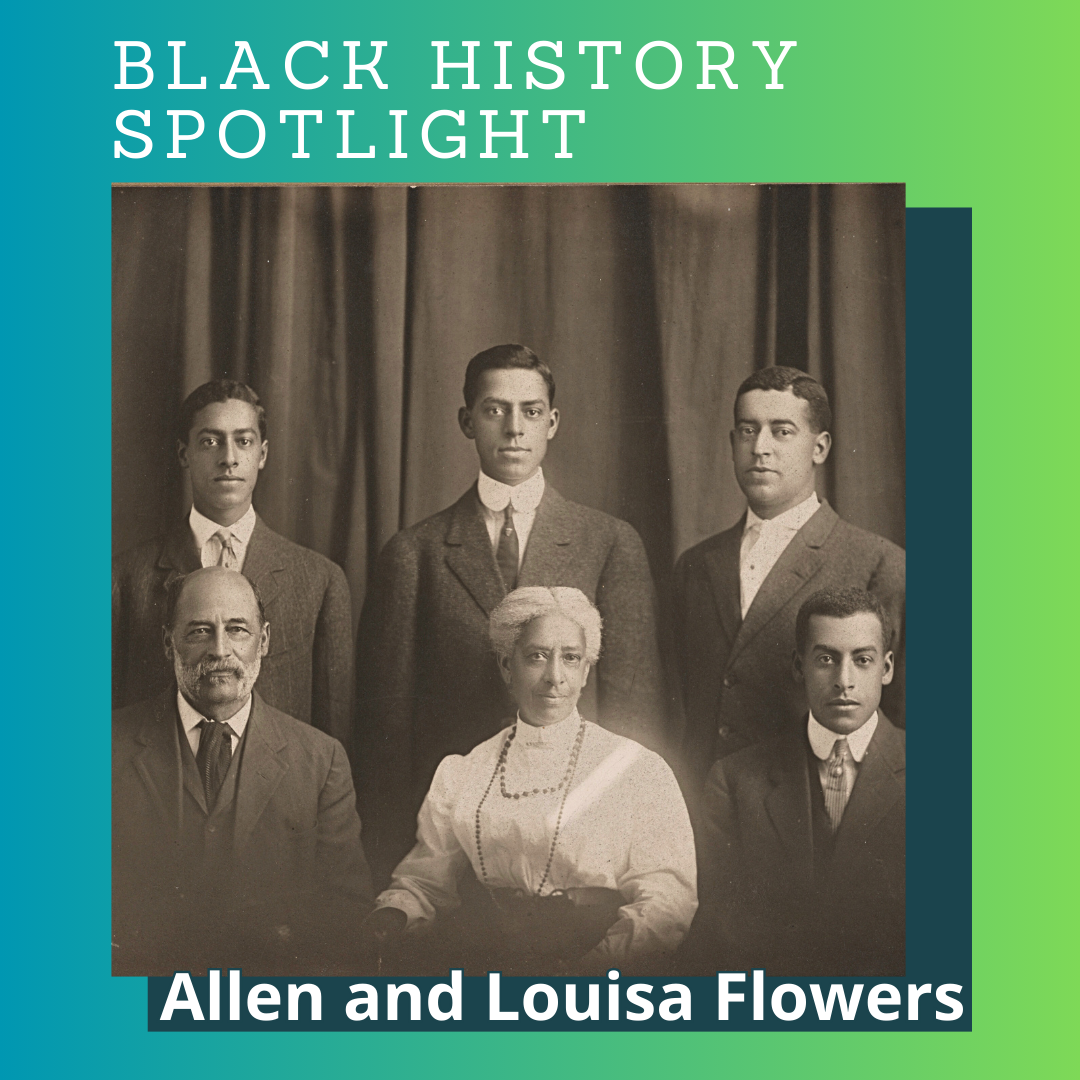Allen and Louisa Flowers were the heads of a prominent Black family in early Portland.
Allen Flowers was born in 1847 in Columbus Ohio. In 1865 he was working as a cabin boy on the ship Brother Jonathan when it docked in Portland. Flowers deserted and decided to stay in Oregon. He worked at the city’s Lincoln Hotel, then as a janitor at the US Customs House, and finally for the Oregon Steam and Navigation Company. Flowers had a light complexion. In the 1870 census, he was living in Portland with a wife named Cordelia and a daughter named Harriet, all three of whom were listed as White.
Louisa Thacker was born in 1849 in Boston. Her early life is unknown, but it is believed her parents, Henry and Josephine Thacker, moved the family west during the California Gold Rush. They may have been among the 500-800 Black Californians who chose to immigrate to British Columbia ahead of the Civil War.
It is not clear how the two met, but at some point Allen went to Victoria, BC where he married Louisa Thacker in December 1882. Allen’s daughter Harriet was listed as a witness. After marrying, Louisa moved with Allen to Portland.
In 1883, Northern Pacific became the first transcontinental railroad line to reach Portland. Allen was hired for the desirable job of Porter–in–Charge aboard Northern Pacific’s Portland-Seattle line. He kept this job until 1900. From his wages, the Flowers purchased a home on NE 1st Avenue.
They eventually purchased more properties, including two more homes on NE First Avenue, and a home on NE Schuyler Street. The Flowers also owned a farm just outside of Portland near Mt. Scott, where they raised horses and hosted social gatherings.
The couple’s real estate success gave them a prominent role in local social affairs. Louisa in particular used her position to advance various social causes through leadership in local civic organizations, like the Bethel AME Church, the NAACP, the Williams Avenue YWCA, and the Oregon Federation of Colored Women’s Clubs. Allen was selected by Governor Oswald West to represent Oregon in a national Negro Farmer’s Caucus, and helped organize a 1913 visit to Portland by Booker T. Washington.
Allen and Louisa Flowers raised four sons in Portland, Erving, Elmer, Lloyd, and Ralph. Several of them would become successful businessmen themselves. Ralph Flowers owned an auto repair shop that later became The Cotton Club, a prominent venue for jazz. Ralph and his wife Ruth also owned and operated a seaside resort property in Oceanlake (now Lincoln City) during the early 1930s.
Louisa died in 1928, and Allen died in 1934. Both were laid to rest at Lincoln Memorial Park Cemetery. In 2019, the Portland based affordable housing agency Home Forward named a new apartment building for Louisa Flowers.
Photo credit: Oregon Historical Society

